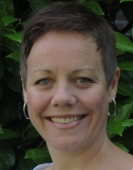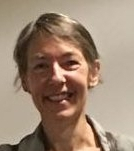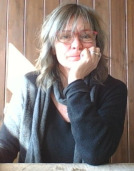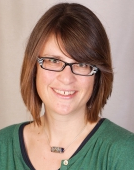We were particularly pleased to see so many members of our sister societies MET and NEaT attending the SENSE 2018 Conference. Here, some of the MET members who attended tell us what they thought of the conference.
Emma Goldsmith
 The SENSE conference was my first-ever visit to the Netherlands. I encountered a Den Bosch that was warm (warmer than my hometown Madrid), traffic free (a welcome break from polluted air) and full of bicycles (city cycling is too risky at home).
The SENSE conference was my first-ever visit to the Netherlands. I encountered a Den Bosch that was warm (warmer than my hometown Madrid), traffic free (a welcome break from polluted air) and full of bicycles (city cycling is too risky at home).
And the conference itself? A small, friendly group of some 80 people living under one roof meant we could get to know one another over breakfast, at a presentation or even in the loos! There was some good content too. I particularly enjoyed John Linnegar’s review of Garner’s Modern English Usage. Not only did we hear about the benefits of this new corpus-based resource, but we were also able to leaf through the book ourselves at the end of the session. Valerie Matarese’s talk ‘Bad Textual Mentors: how awkwardly written research articles complicate the work of an authors’ editor’ was also interesting. Valerie explained how poorly written texts are propagated through citing, and as a result, scientific terminology is distorted. Food for thought indeed.
(For more information about Emma, see her website.)
Gráinne Newcombe

(Gráinne can be found in the MET directory.)
Marije de Jager
 A highlight for me was Tom Johnston’s talk ‘Mid-Atlantic English: which mid-Atlantic English?’ because it offered a solution to something I’ve been struggling with for years: which English to ‘adopt’ when – like me – you don’t have your own, native English. The Mid-Atlantic English (MAE) Tom proposed takes the strongest elements of UK and US English and merges them into a variant of English for use in international contexts; in other words, a standardized lingua franca. To create this variant, Tom first applied Google’s Ngrams to corpora of British and American English for a close look at actual usage. Based on the result, he then formulated guidelines to select words, abbreviations, verb endings, punctuation and even certain grammatical forms for MAE. The criteria for selection include frequency, logic and practicality. It was appealing to imagine that MAE might become the standard to replace the vague and poorly defined ‘international English’.
A highlight for me was Tom Johnston’s talk ‘Mid-Atlantic English: which mid-Atlantic English?’ because it offered a solution to something I’ve been struggling with for years: which English to ‘adopt’ when – like me – you don’t have your own, native English. The Mid-Atlantic English (MAE) Tom proposed takes the strongest elements of UK and US English and merges them into a variant of English for use in international contexts; in other words, a standardized lingua franca. To create this variant, Tom first applied Google’s Ngrams to corpora of British and American English for a close look at actual usage. Based on the result, he then formulated guidelines to select words, abbreviations, verb endings, punctuation and even certain grammatical forms for MAE. The criteria for selection include frequency, logic and practicality. It was appealing to imagine that MAE might become the standard to replace the vague and poorly defined ‘international English’.
(Marije can be found in the MET directory.)
Anne Murray
 I travelled to my first-ever SENSE conference with friend and fellow presenter Ailish Maher. This is fitting because Ailish was the person who took me to my first-ever Mediterranean Editors and Translators Meeting (METM) meeting in 2005. On arrival at Eindhoven airport, Ailish and I got talking to a Dutch couple who had missed their flight to Portugal. They chatted to us about Den Bosch and its people and taught us how to pronounce the official name for the city, ’s-Hertogenbosch, and explained what it meant. It was a good start for two linguists!
I travelled to my first-ever SENSE conference with friend and fellow presenter Ailish Maher. This is fitting because Ailish was the person who took me to my first-ever Mediterranean Editors and Translators Meeting (METM) meeting in 2005. On arrival at Eindhoven airport, Ailish and I got talking to a Dutch couple who had missed their flight to Portugal. They chatted to us about Den Bosch and its people and taught us how to pronounce the official name for the city, ’s-Hertogenbosch, and explained what it meant. It was a good start for two linguists!
Half an hour after arriving at the hotel, I was seated at a restaurant table for an informal intersociety dinner with Jenny Zonneveld and John Linnegar from SENSE, Kenneth Quek from NEaT, Sarah Griffin-Mason from the ITI, and fellow MET council member Emma Goldsmith. We spent a pleasant and productive two hours chatting about different aspects of our respective associations and exploring informal mechanisms for further collaboration. John had wisely prepared a checklist of points to discuss that we had prioritized in advance.
The conference venue and organization were top-notch and staying in the same place as most of the other conference-goers made for easy connections and networking. There was no shortage of interesting talks, but I particularly enjoyed Maria Sherwood-Smith’s account of how she and her team apply the daisy model to help researchers communicate their core message effectively. Maria, if you’re reading this, MET would like a presentation on this part of your work next year – and another one sometime on medieval manuscripts! One of the things I enjoyed most about the conference was hearing about the challenges facing people doing similar work to me but in a very different language and culture. SENSE and Den Bosch, thank you!
Susannah Goss
 I thoroughly enjoyed Stephen Johnston’s workshop ‘The Impossible Blog’ on how to write a readable blog post from unreadable material. The principles we applied to transform wads of technical and business documentation into an engaging read for asthmatics will come in useful when I’m struggling to make complex research findings accessible to a lay audience. And for someone who’s been working as a lone editor for far too long, it was great fun to brainstorm with other participants and to hear everyone’s brilliant ideas.
I thoroughly enjoyed Stephen Johnston’s workshop ‘The Impossible Blog’ on how to write a readable blog post from unreadable material. The principles we applied to transform wads of technical and business documentation into an engaging read for asthmatics will come in useful when I’m struggling to make complex research findings accessible to a lay audience. And for someone who’s been working as a lone editor for far too long, it was great fun to brainstorm with other participants and to hear everyone’s brilliant ideas.
Like a good blog entry, the conference ended with a call to action. In her closing plenary talk on ‘Trends in translation and interpreting to 2050’, Sarah Griffin-Mason encouraged language professionals to organize and make our voices heard. We need to show people what we do – and to communicate the skill and value in what we do. One way of helping to shape the future of our professions is to get involved in organizations such as SENSE, MET and NeAT … and potentially a German sister organization in the years to come?! So come on, fellow SENSE members in Germany – let's get our heads together!
(Susannah can be found in the MET directory.)
Jacqueline Lamb
 My decision to attend the SENSE conference was somewhat spur of the moment, after hearing about it through MET, having a quick look at the programme and deciding I’d quite like a weekend in the Netherlands!
My decision to attend the SENSE conference was somewhat spur of the moment, after hearing about it through MET, having a quick look at the programme and deciding I’d quite like a weekend in the Netherlands!
The conference was very well organized and the venue and food were excellent. There were also plenty of opportunities to chat to colleagues during meals and breaks. In terms of content, there was an interesting mixture of presentations on topics related to translation, editing and English in general. I found the session by Tony Parr and Marcel Lemmens on ‘Identifying and rectifying translatorese’ particularly interesting, since the Dutch to English examples were a different type of ‘translatorese’ than I am used to seeing in texts translated from the Romance languages I work with.
Overall, I found the event to be very worthwhile and enjoyable, and I will definitely try to attend another SENSE conference in the future.
(Jacqueline can be found on LinkedIn and in the MET directory.)
